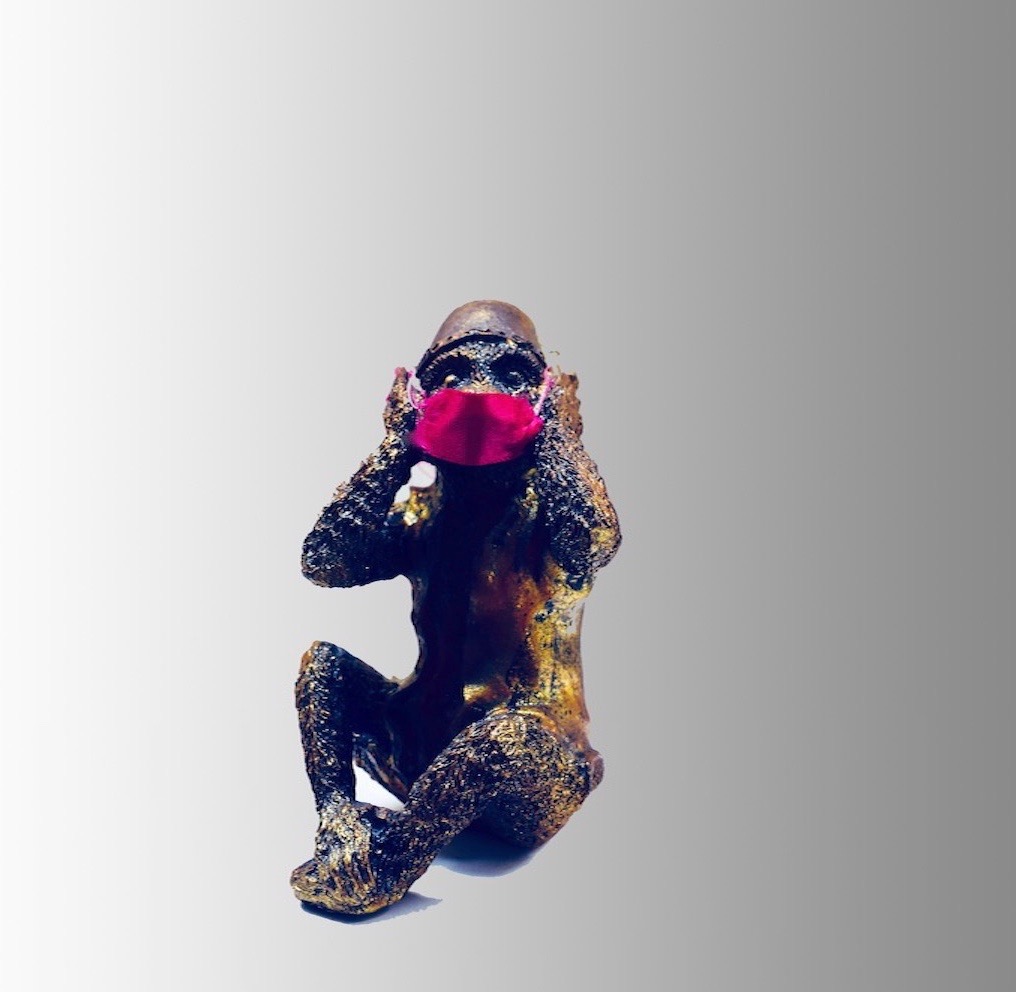Back in Southern Virginia where I grew up, natives might describe neighboring towns as being a “spit away” when the borders are a cozy distance apart. Much to my dismay, my New York home is a mere spit away from the first two East Coast epicenters of the Coronavirus pandemic. In order to follow the required protocols and keep my family as safe as possible, I wear face masks whenever I venture out in public. We are all just a “spit away” from deep trouble, and I marvel that some individuals balk at donning these potentially life-saving coverings during this health crisis.
If you happen to be one of those late adapters, feel self-conscious or claustrophobic, or worry that your human rights are being trampled because of face mask requirements, I suggest you consider the upside to wearing a mask. Sure, when you walk the dog, you might be forced to breathe in your own pre-coffee-morning breath recirculating air. But look at the bright side – masks make you look both smart and beautiful.
Think about it: Back in pre-pandemic February when you stood transfixed in the Shop Rite aisle, calculating the mental math of the best tomato paste bargain, you resembled a lazy daydreamer. Fast forward a few eventful months, and now when you grasp that same six-ounce can of sauce while wearing a face mask, you have the bearing of a surgeon pondering the most creative method to salvage a patient’s endangered limb. It doesn’t even have to be a medical grade mask or the hard-to-come-by type with the fancy white shell. Even if you place some fabric from an old Mini Mouse t-shirt around your mouth and nose, your old SAT score will appear to shoot up by at least fifty points.
And masks are not only flattering because they help you resemble the brain surgeons on Grey’s Anatomy. When the mask is pulled down on your chin as you gasp for a bit of air at an appropriate distance from friends and neighbors, you have achieved the rare but desirable condition of “framing your face”.
Long before YouTube videos tutored us about achieving peak selfie pulchritude, my mother touted the time-worn advice that if you want to look good in a photo, you should never, ever wear a scoop neck shirt. My mother forbade others from taking her photograph unless she was engaged in full on face framing behavior with a turtleneck, scarf, or rigid collar. The mask, gently lowered to the chin (casual post-surgery look for the faux medical professional that you are), covers any sagging, wrinkling skin on your aging neck that is starting to look a bit like a slinky and achieves the nirvana status of the perfect face framing device.
Ever since I took an art history class during my freshman year of college, I have wanted to sound like my brilliant professor and use the phrase “elegant juxtaposition of verticals and horizontals” in a complete sentence. Well, I finally have my wish. All of those horizontal straps and lines in masks provide a contrast for any sharp vertical excesses a prominent nose might present. Masks balance a wide forehead and even make your neck look long (hence the elegant juxtaposition). They cover spinach or popcorn trapped in yellowing teeth that missed their last professional cleaning. A mask draws attention away from that halo of gray hair or the strange orangish color you achieved recently from the last bottle of hair dye you grabbed with gloved fingers at the drug store.
Despair, death, dislocation, disappointment, and unemployment follow Covid-19 like vultures. When you wear a mask, you are telling those other anxious souls in the pharmacy line that their well-being is worth a few minutes of fogged up glasses. Look at yourself in the mirror before you venture into that germ-infested supermarket or take your kids into the pediatrician’s office, and smile behind your newly acquired face mask. No one else might see you, but trust me, you look beautiful.
Raised in Norfolk, Virginia, Sharon is a reform rabbi who works in the field of Jewish education. She is the author of Honest Answers to Your Child’s Jewish Questions (URJ, 2006) and most recently The Baseball Haggadah: A Festival of Freedom and Springtime in 15 Innings (2015). She has had essays published and posted in Forth Magazine, Kveller, Literary Mama, Mothers Always Write, Mamalode, Lilith.org, The Times of Israel, ReformJudaism.org, The Bitter Southerner, Parent.co/Motherly, Coffee+Crumbs, Moms and Stories, the Write Launch, read650, and Grown and Flown.
For the past fifteen years, Sharon has lived with her husband and three children in Westchester, New York, where she tutors bar and bat mitzvah students (with FaceTime for now) and wears a face mask as part of her daily uniform.
